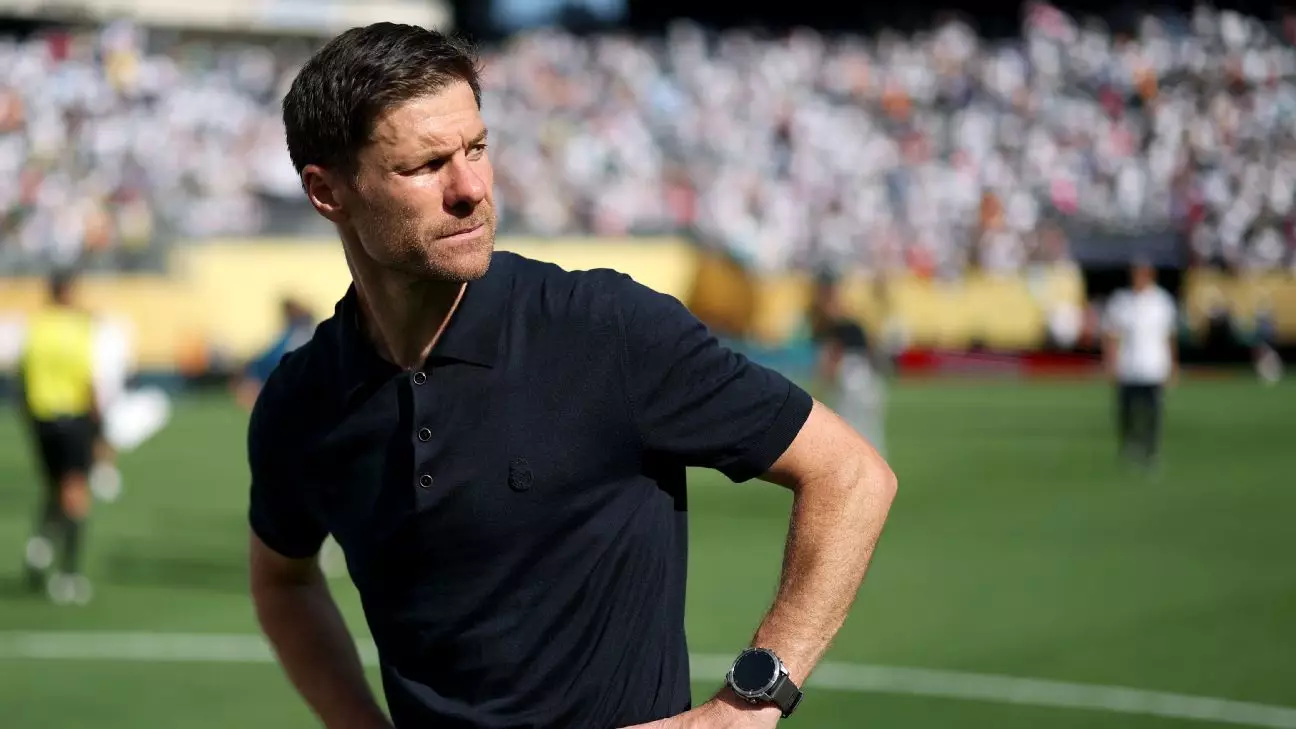Real Madrid stands on the threshold of a pivotal transformation under the strategic leadership of Xabi Alonso. After a trophyless season that left a void in their illustrious history, the club’s legacy now hinges on the bold decisions and innovative tactics Alonso is poised to implement. His return to Madrid as head coach symbolizes a commitment to revitalize the club’s competitive edge, harnessing fresh talent and a new playing philosophy. This is not merely about hoping for success but demanding it through radical change and unwavering discipline.
The incoming manager inherits a squad ripe for restructuring. With a reputation forged at Bayer Leverkusen, Alonso’s managerial approach emphasizes daring decisions—dropping underperformers when necessary, enforcing discipline, and instilling a cohesive tactical identity. The club’s recent struggles highlight the urgent need for such a shift. Expect Alonso to orchestrate a team that not only competes but also dominates, redefining Madrid’s playing style to adapt to the evolving demands of modern football.
High Stakes, Bigger Ambitions
Alonso’s return to Madrid is fueled by high ambitions—silverware that has eluded the club in recent seasons. Historically adorned with trophies, Madrid now requires a strategic overhaul to reclaim its dominance on multiple fronts. The club’s financial strength, exemplified by recent signings like Trent Alexander-Arnold and Dean Huijsen, signals a readiness to invest heavily in talent. These acquisitions aren’t just about strengthening the squad; they’re statements of intent, underscoring Alonso’s drive to compete at the highest level again.
However, signings alone won’t guarantee success. The real challenge lies in integrating these new players into a unified system that fosters understanding, resilience, and tactical flexibility. Alonso’s previous success at Leverkusen and reputation for meticulous planning suggest he is prepared to leverage this transfer boom effectively. His ability to adapt star players, such as Kylian Mbappé and Vinícius Júnior, into complementary components within his system will be crucial. The expectation is a Madrid team that plays with intensity, tactical clarity, and a relentless hunger for victory.
Managing Egos and Expectations
One of the most delicate aspects of Alonso’s task is managing player egos and expectations. Madrid’s dressing room has historically been home to some of the world’s most talented yet often self-driven individuals. Bale’s comments underscore this reality, emphasizing Alonso’s respect for player autonomy and his readiness to make tough decisions if standards aren’t met. This approach might attract criticism initially but will ultimately be necessary for instilling a culture of accountability.
Alonso has an advantage—his reputation as a player-lover and tactician who commands respect. Bale’s insight that Alonso is unafraid to “drop anyone” suggests a new level of accountability that the squad hasn’t experienced in recent years. For stars like Mbappé, who is expected to balance goal-scoring with team cohesion, Alonso’s emphasis on discipline could be transformative. It signals a move away from individual brilliance that doesn’t translate into team success, pushing players to evolve into more disciplined and tactically disciplined athletes.
Learning from the Past, Building the Future
The recent exit of Luka Modrić marks the end of an era—one characterized by elegance, intelligence, and unmatched dedication. Bale’s commendation of Modrić as one of the greatest footballers highlights the importance of experience and leadership in rebuilding Madrid’s team ethos. Alonso, himself a legendary midfielder, understands that sustainable success depends on both nurturing young talent and respecting the wisdom of veterans.
Balancing this blend of youth and experience will be essential. Alonso’s vision may involve blooding new talents while utilizing leaders like Vinícius Júnior and the emerging stars to guide the team through turbulent times. The challenge lies in translating individual talent into collective superiority, a task that demands tactical innovation, rigorous training, and an unwavering focus on team chemistry.
A Personal Touch and a Passionate Vision
Bale’s glowing remarks about Alonso’s passion and dedication hint at the coach’s personal commitment to excellence. His meticulousness at Leverkusen—spending hours on the training ground and demanding high standards—indicates a manager who does not accept mediocrity. This intensity, if channeled correctly, could be exactly what Madrid needs to lift itself out of stagnation.
Yet, criticism of Alonso’s lack of managerial experience relative to his playing pedigree must be considered. The transition from player to coach is fraught with challenges—subtle tactical nuances, man-management, and the unpredictability of top-level competition often require years to master. That Alonso’s success at Leverkusen and admiration from Bale suggest promise is encouraging, but Madrid’s relentless expectation will test whether he can translate this potential into consistent winning.
The club’s future hinges on Alonso’s ability to craft a winning mentality, foster discipline, and make tough choices when necessary. His success will ultimately be judged not just by results, but by the identity he carves out for Madrid—a fearless, disciplined club that is unafraid to make big changes to achieve greatness once more.

